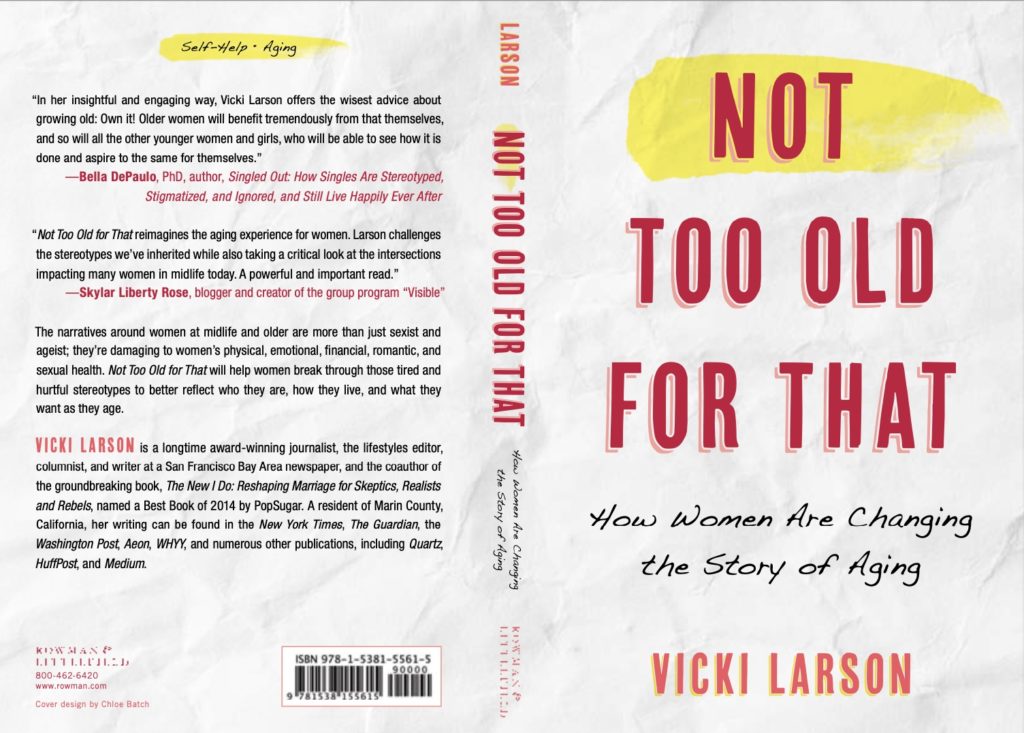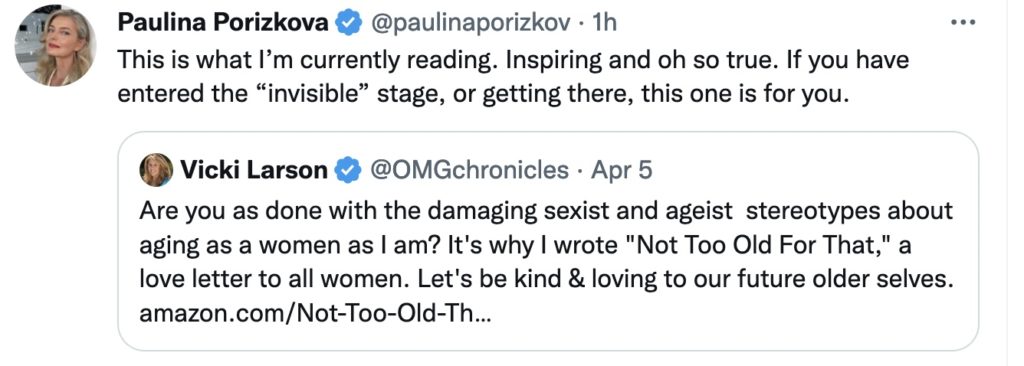Not Too Old For That
Mar 5th, 2022 by OMGchronicles
Busting the harmful narrative about aging as a woman
The world will soon be populated with more older people than young ones, and most of them will be women because we live longer than men. Truly, the future is female. Are women going to have to continue to fight ageist, sexist stereotypes?
My new book, Not Too Old for That: How Women Are Changing the Story of Aging (Rowman & Littlefield, April 4, 2022), named a Best Book of 2022 by Take the Lead, helps women bust through the narratives we’ve been sold and often internalize to create the future life we want. Booklist says, “Readers will be encouraged to embrace aging and feel more valued, vibrant, financially secure, and open to love. Larson’s message is empowering.”
Who hasn’t heard the stereotypes about women of a “certain age”? That’s the age we become invisible, irrelevant, undesirable, asexual, unhinged, dried-up hormonal messes. It’s when women quickly slide into fragility, and become forgetful, passive, weak, feeble, disabled, depressed and dependent. Or so the story goes.

Drawing on queer and crip theories, my book uses solid science to show how those outdated ageist and sexist narratives influence our decisions and just how harmful they are to women’s physical, emotional, financial, romantic and sexual health.

I address invisibility, romantic relationships, friendship, sex, health, beauty and money.
What needs to happen, what this book hopes to accomplish, is to help change the narrative about being a woman at midlife and older. To question what we’ve been told aging would be like and instead ask ourselves, what do we want it to be like and how can we get there. To be curious, open-minded, and intentional about the ways are we “becoming” our future selves.
We have an opportunity to create new narratives of aging as a woman, ones that value women at all stages of life, not just youth. It starts with us. Whether women realize or not, we’ve been perpetuating thoughts and behaviors that make things worse for our aging selves and others. Once we break that down, we can move past the stereotypes that are holding us back, and rather than feel helpless as the years add up, we can discover and tap into just how much agency we have.
Not only will that help us create a less-ageist, less-sexist, more-inclusive future, it will release our daughters and all young women from a similar future.
Order the book here.
















